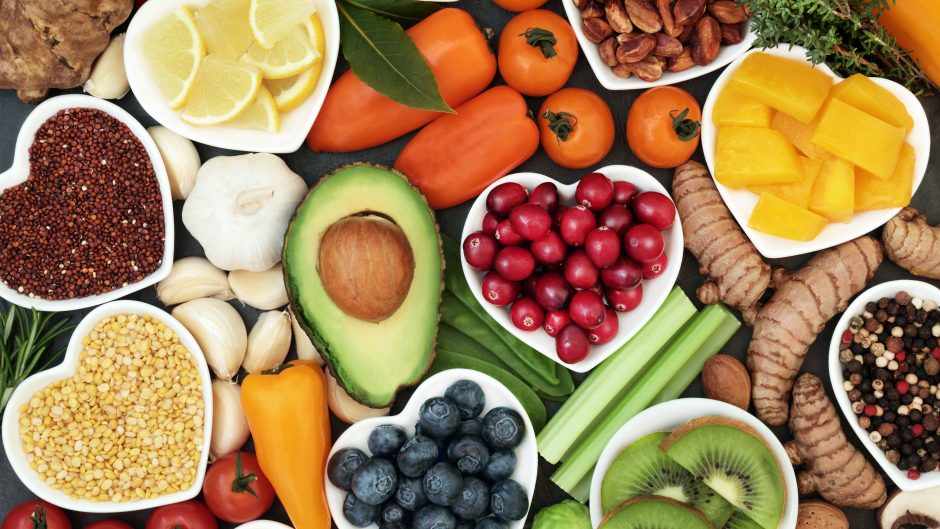To have good health, it is highly recommended that you :
- Give preference to raw, seasonal, unprocessed products. This will limit the intake of additives (emulsifiers sweeteners, colorants …) whose effects are not well documented.
- Use food supplements
- Give preference to products that are grown in an area that uses less pesticides
More information here: How To Stay Healthy?
What to eat?
- Fruits and vegetables: At least 5 portions per day of 80-100 g, depending on the preparation method (raw, cooked fresh, frozen, canned, or frozen). Avoid fruit juice and dried fruits.
- Nuts with no added salt: A small amount per day is enough for those who aren’t allergic to almonds, walnuts or hazelnuts (pistachios and so on). ).
- Pulses: At least twice per week: beans, lentils, chickpeas and dried beans. These are great sources of fiber, protein, and can be used to reduce meat consumption.
- Cereal products: Every day, preferring wholemeal products and those that aren’t very refined (rice pasta, wholemeal bread etc. ).
- Dairy products: Two portions per day, one serving corresponding to 150ml of milk and 125g yogurt, or 30g of cheese.
- Meat: Give preference to poultry, and limit red meat consumption (beef/pork, veal/mutton, goat/horse, wild boar, doe, etc.) to 500g per week.
- 2 portions of fish and seafood per week, with one portion each of salmon, mackerel or tuna. To limit contamination, you should vary the supply locations and species.
- Limit your consumption of charcuterie to 150g per week
- Limit on added fats
- Use vegetable oils, such as rapeseed and walnut oil, instead.
- Products with sweetened ingredients: To be limited, especially products that are both sweetened and fatty (e.g., desserts, pastries, dairy desserts, ice-cream).
- Limit sweetened and watered down drinks to water. If they aren’t sweetened, tea, coffee, and herbal teas may increase water intake.
- Salt: To be reduced. Avoid “hidden” salt in breads, prepared-made meals, cookies, and other foods. It is better to use iodized salt.
Also, do at least 30 minutes of physical activity per day, five days a week. To increase endurance, muscle strength, flexibility, balance, and coordination, it is recommended that you try different types of exercise.

